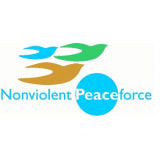
As an unarmed, paid civilian protection force, Nonviolent Peaceforce fosters dialogue among parties in conflict and provides a protective presence for threatened civilians.
With the headquarters in Brussels and an office in Minneapolis, NP field teams are presently deployed in the Philippines, in South Sudan, Myanmar and the Middle East. Their field staff include veterans of conflict zones, experienced peacekeepers, and those new to the field with the right combination of experience, skills, aptitude and attitude. Nonviolent Peaceforce (NP) is registered in the US as a 501(c)(3) non-profit organization and in Belgium as an AISBL.
Within every combat zone they enter, and throughout their work worldwide, they want to achieve four overarching goals:
Their Mission
They protect civilians in violent conflicts through unarmed strategies. They build peace side by side with local communities. They advocate for the wider adoption of these approaches to safeguard human lives and dignity.
They envision a worldwide culture of peace in which conflicts within and between communities and countries are managed through nonviolent means.
They most often respond to invitations by credible local organizations committed to nonviolent solutions. Once invited, they meet key players, including commanders from opposing sides, local police, religious, business, and civil society leaders. They live and work in communities within conflict zones alongside local people.
When violence erupts, civilians under threat often contact them. They know and trust them. They have been living among them. Visibly nonpartisan and unarmed, they arrive in NP uniforms, with NP vehicles, letting their presence be known.
They build the confidence and safety of civilians deeply affected by conflict so they can access available structures and mechanisms for addressing problems and grievances.
Their activities have ranged from entering active conflict zones to remove civilians in the crossfire to providing opposing factions a safe space to negotiate. Other activities include serving as a communication link between warring factions, securing safe temporary housing for civilians displaced by war, providing violence prevention measures during elections and negotiating the return of kidnapped family members.


